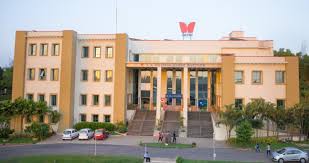Introduction
Established in 1984, the T. A. Pai Management Institute (TAPMI) in Manipal, Karnataka, has emerged as one of India’s leading business schools. Named after the visionary leader and philanthropist, T. A. Pai, the institute is renowned for its commitment to excellence in management education. TAPMI focuses on creating responsible leaders who are equipped to navigate the complexities of the global business environment.
Vision and Mission
TAPMI’s vision is to be a globally recognized institution for management education and research, fostering leadership through innovation and ethical practices. The mission of the institute emphasizes the development of professionals who are not only skilled in management practices but also socially responsible and capable of making a positive impact on society.
Academic Programs
TAPMI offers a range of management programs designed to cater to the diverse needs of students and professionals:
- Post Graduate Diploma in Management (PGDM): TAPMI’s flagship program, the PGDM, is a two-year full-time course that offers specializations in areas such as Marketing, Finance, Operations, and Human Resources. The curriculum is designed to provide a robust foundation in management principles while encouraging critical thinking and practical application.
- Post Graduate Diploma in Management (Financial Services): This specialized program focuses on the financial sector, equipping students with knowledge and skills essential for careers in banking, investment, and financial analysis. The curriculum integrates theoretical knowledge with industry practices, preparing students for roles in the dynamic financial landscape.
- Executive Post Graduate Diploma in Management (EPGDM): Tailored for working professionals, the EPGDM program allows students to enhance their managerial skills while balancing their professional commitments. The program emphasizes experiential learning and offers a flexible schedule to accommodate busy professionals.
- Doctoral Programs: TAPMI also offers research-oriented programs, including a Ph.D. in Management. These programs encourage scholarly research in various management disciplines, contributing to academic literature and practice.
Curriculum and Pedagogy
The curriculum at TAPMI is regularly updated to reflect the latest industry trends and practices. The institute employs a blend of pedagogical methods, including lectures, case studies, group discussions, and simulations. This multifaceted approach encourages students to engage actively with the material, fostering a deeper understanding of complex management concepts.
Experiential learning is a cornerstone of TAPMI’s educational philosophy. Students participate in live projects, internships, and industry visits, allowing them to apply theoretical knowledge in real-world contexts. Additionally, the institute emphasizes the development of soft skills, leadership abilities, and ethical decision-making, which are vital in today’s corporate landscape.
Faculty
TAPMI prides itself on its highly qualified faculty, many of whom hold advanced degrees from prestigious institutions both in India and abroad. The faculty members bring a wealth of experience from academia and industry, enhancing the learning experience for students. Their diverse backgrounds foster an environment of intellectual curiosity and innovation, encouraging students to think critically and creatively.
Campus and Infrastructure
The TAPMI campus is designed to facilitate a holistic learning experience. Key features of the campus include:
- Modern Classrooms: Equipped with the latest audio-visual technology, classrooms at TAPMI foster interactive learning and collaborative discussions.
- Library and Resource Center: The institute boasts a well-stocked library that provides access to a vast collection of books, journals, research papers, and online databases, supporting students’ academic pursuits.
- Learning Spaces: TAPMI provides various collaborative spaces where students can work on group projects, engage in discussions, and participate in extracurricular activities.
- Recreational Facilities: The campus promotes a balanced lifestyle with facilities for sports, fitness, and leisure, encouraging students to engage in activities beyond academics.
Industry Connections and Internships
TAPMI has established strong connections with various industries, facilitating internships and live projects for students. The institute’s placement cell works diligently to create opportunities for students to gain practical experience and build professional networks. Regular workshops and guest lectures by industry leaders further enrich the learning experience, exposing students to real-world challenges and expectations.
Placement and Career Services
The placement cell at TAPMI is dedicated to assisting students in securing rewarding job opportunities. The cell organizes campus recruitment drives, providing students with access to a wide range of employers from diverse sectors. Workshops on resume building, interview preparation, and career counseling are integral components of the placement process, ensuring students are well-prepared for the job market.
TAPMI boasts a strong track record of placements, with graduates being recruited by top-tier companies across various industries, including consulting, finance, technology, and manufacturing. The alumni network also plays a crucial role in the placement process, with many alumni returning to the institute to recruit fresh talent.
Alumni Network
The TAPMI alumni network is a testament to the institute’s impact on its graduates’ careers. Alumni hold prominent positions in leading organizations globally, contributing to various sectors. The institute maintains strong ties with its alumni, organizing networking events, mentorship programs, and alumni chapters to facilitate connections among graduates.
This vibrant alumni community not only supports current students but also enhances TAPMI’s reputation, creating opportunities for collaboration and professional development.
Research and Innovation
Research at TAPMI is encouraged and supported through various initiatives. Faculty and students engage in research projects that contribute to the field of management, with a focus on contemporary issues and challenges. The institute hosts seminars, workshops, and conferences, providing a platform for scholars to present their findings and share insights.
The emphasis on research and innovation not only enhances the academic environment but also positions TAPMI as a thought leader in management education.
Conclusion
The T. A. Pai Management Institute (TAPMI) in Manipal stands out as a premier institution dedicated to excellence in management education. With its comprehensive curriculum, experienced faculty, modern infrastructure, and strong industry connections, TAPMI prepares students to become competent and responsible leaders in the business world. The institute’s focus on experiential learning, research, and a robust alumni network further reinforces its position as a top choice for aspiring management professionals in India and beyond.


